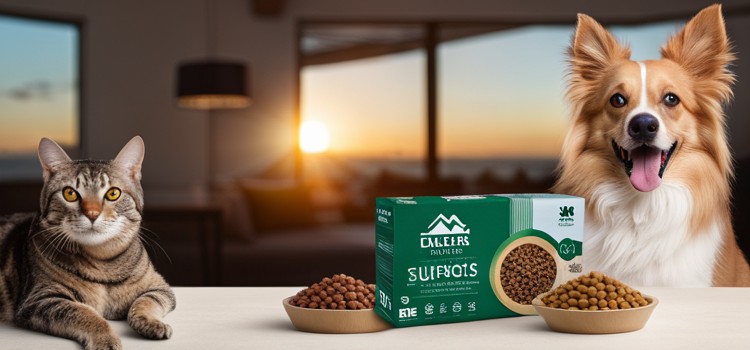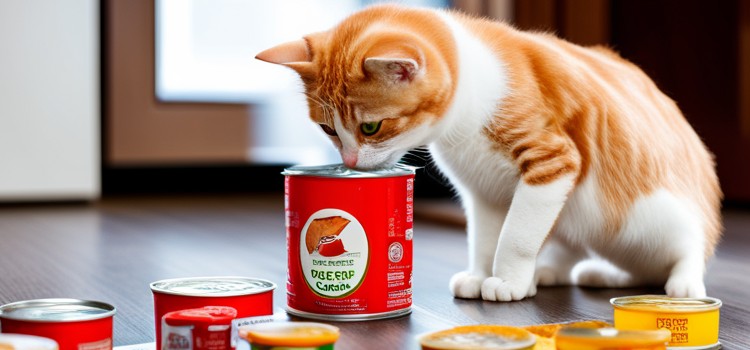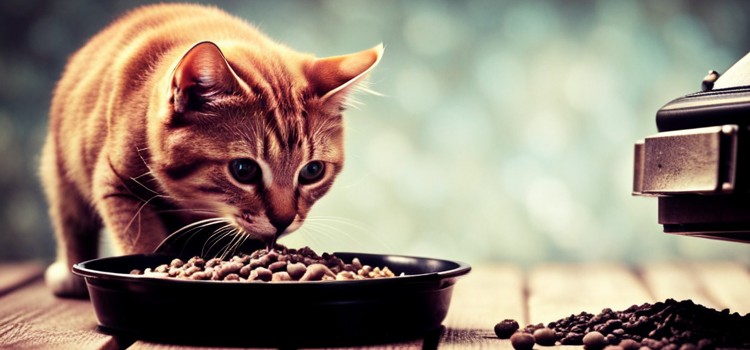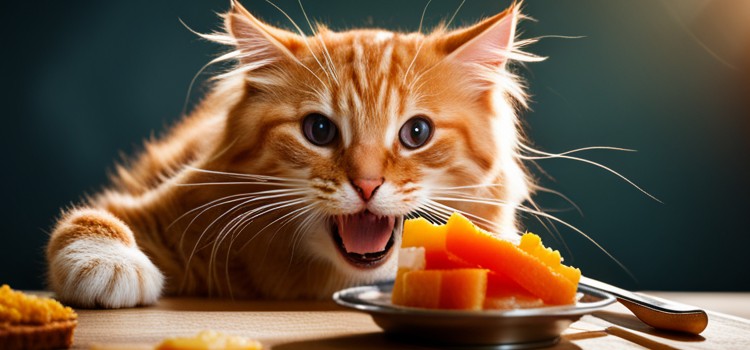As an Amazon Associate committed to the mission of improving the lives of our readers, Live-Clear.com receives a small commission from eligible purchases made through our affiliate links. This revenue enables us to keep producing insightful articles and other material.
Cats can eat artichokes in small amounts. Artichokes are not toxic to cats but offer little nutritional value.
Artichokes are a common vegetable in many human diets, known for their unique flavor and health benefits. While they are safe for cats in small quantities, they don’t provide significant nutritional benefits for felines. Cats are obligate carnivores, meaning their diet should mainly consist of meat.
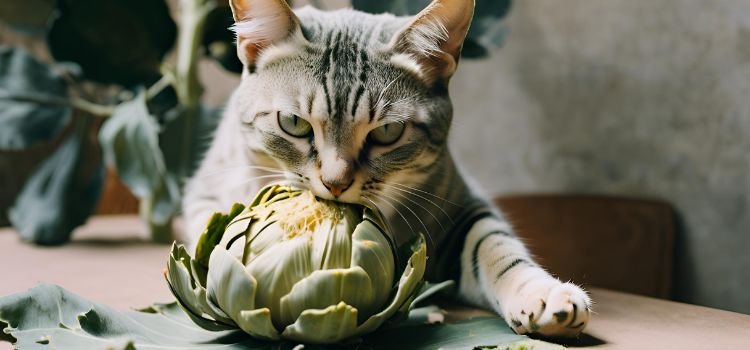
Feeding them vegetables like artichokes should be occasional and only in tiny amounts. Always consult your veterinarian before introducing any new food into your cat’s diet. Some cats may have digestive sensitivities, and it’s crucial to monitor them for any adverse reactions. Balance and moderation are key to maintaining your cat’s health and well-being.
Feline Diet
Many pet owners wonder about their cats’ diet and what foods are safe. One common question is: Can cats eat artichoke? To answer this, it’s important to first understand the feline diet. Cats have specific nutritional needs that differ from humans and other animals. It’s crucial to ensure they get the right nutrients for a healthy life.
Cats’ Nutritional Needs
Cats are obligate carnivores, meaning they need meat to survive. Their bodies are designed to process animal protein. Here are some key nutritional needs for cats:
- Protein: Essential for muscle growth and repair. Cats need a high-protein diet.
- Taurine: An amino acid found in meat. Vital for heart and eye health.
- Fat: Provides energy and supports cell function. Cats need healthy fats in their diet.
- Vitamins: Essential for various body functions. Vitamins A, D, E, and K are crucial.
- Minerals: Important for bone health and other functions. Calcium and phosphorus are key minerals.
To meet these needs, cats should eat a diet rich in animal proteins and fats. Commercial cat foods are formulated to provide balanced nutrition. Always check the label to ensure it meets the nutritional standards set by the Association of American Feed Control Officials (AAFCO).
Feeding Cats Human Food
Many cat owners share their food with their pets. While some human foods are safe, others can be harmful. Here’s a quick guide:
| Safe Foods | Unsafe Foods |
|---|---|
| Cooked chicken | Chocolate |
| Cooked fish | Onions |
| Small amounts of cheese | Garlic |
| Plain rice | Grapes |
Artichokes are not toxic to cats, but they are not ideal. Cats lack the enzymes to digest plant-based foods well. Feeding them artichokes can cause digestive issues like diarrhea or vomiting. If you want to give your cat a treat, stick to animal-based snacks.
Always consult your vet before introducing new foods. This ensures your cat’s diet remains balanced and healthy. Remember, a proper diet is key to a long and happy life for your feline friend.
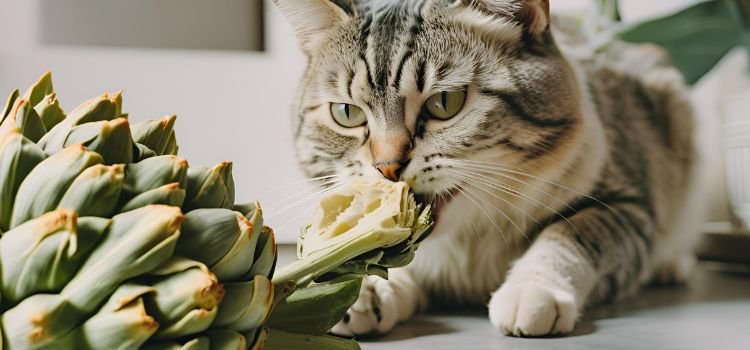
Artichokes And Cats
Ever wondered if your furry friend can enjoy artichokes? As a cat owner, it’s important to know what foods are safe and healthy for your pet. Let’s delve into the relationship between artichokes and cats.
What Are Artichokes?
Artichokes are edible plants known for their unique flavor and health benefits. They belong to the thistle family and are often used in various dishes. Here are some key points about artichokes:
- Appearance: Artichokes have a tough, green exterior with a tender heart inside.
- Nutrition: They are rich in fiber, vitamins, and antioxidants.
- Uses: People often steam, boil, or grill artichokes for meals.
Artichokes are not only tasty but also offer numerous health benefits for humans. The high fiber content aids digestion, while vitamins C and K boost immunity. The antioxidants in artichokes help combat oxidative stress, promoting overall well-being.
Are Artichokes Safe For Cats?
When considering artichokes for cats, safety is a top priority. Cats have different dietary needs compared to humans. While artichokes are not toxic to cats, they are not a natural part of a feline diet. Here are some points to consider:
- Digestive Issues: Cats may have trouble digesting fibrous vegetables like artichokes.
- Choking Hazard: The tough outer leaves can pose a choking risk.
- Allergic Reactions: Some cats might be allergic to new foods, including artichokes.
If you decide to give your cat a small amount of artichoke, make sure it is cooked and free of seasonings. Monitor your cat for any adverse reactions such as vomiting or diarrhea.
Potential Benefits Of Artichokes For Cats
Although artichokes are not a typical cat food, they may offer some benefits. Here are a few potential advantages:
- Fiber: A small amount of fiber can aid in digestion.
- Antioxidants: Antioxidants help protect cells from damage.
- Vitamins: Vitamins in artichokes can support overall health.
Remember, these benefits are not significant enough to make artichokes a staple in your cat’s diet. Always prioritize a balanced diet specifically formulated for cats. If you have any concerns, consult your veterinarian before introducing new foods to your pet’s diet.
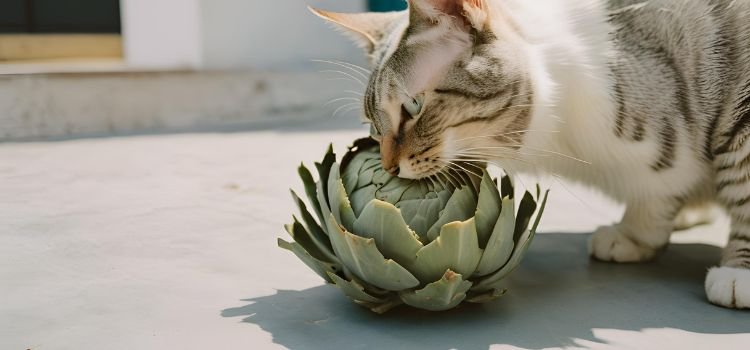
Risks Of Feeding Artichokes To Cats
Artichokes might be a nutritious treat for humans, but are they safe for your feline friend? While cats are obligate carnivores, meaning they thrive on a meat-based diet, some pet owners wonder about the risks of feeding artichokes to cats. Understanding these risks can help you make informed decisions about your cat’s diet.
Gastrointestinal Issues
Feeding artichokes to cats can lead to various gastrointestinal issues. Cats have sensitive digestive systems, and introducing unusual foods can upset their stomachs. Here are some common gastrointestinal problems:
- Diarrhea: Artichokes are high in fiber, which can cause loose stools in cats.
- Vomiting: Cats might vomit if they consume artichokes, especially in large amounts.
- Bloating: The fibrous nature of artichokes can lead to gas and bloating in cats.
It’s crucial to monitor your cat for any signs of discomfort after eating artichokes. If your cat shows symptoms like persistent diarrhea or vomiting, it’s best to contact your veterinarian.
Allergic Reactions
Although rare, cats can have allergic reactions to artichokes. Allergic reactions can be severe and require immediate attention. Some signs of an allergic reaction include:
- Swelling: Look for swelling around the face, lips, and eyes.
- Itching: Excessive scratching or grooming might indicate an allergy.
- Hives: Small, red bumps on the skin can be a sign of an allergic reaction.
In severe cases, a cat might experience difficulty breathing, which is a medical emergency. If you suspect your cat is having an allergic reaction, seek veterinary care immediately.
Toxicity
While artichokes are not inherently toxic to cats, certain components can pose toxicity risks. Artichoke leaves and stems can be tough and difficult for cats to digest. Ingesting these parts can lead to:
- Choking hazards: The fibrous parts can get lodged in a cat’s throat.
- Intestinal blockages: Large pieces of artichoke can block the intestines, causing severe health issues.
- Poisonous substances: If the artichoke is seasoned or cooked with harmful ingredients like garlic or onions, it can be toxic to cats.
Always ensure that any food you give to your cat is free of harmful additives. If you’re unsure, it’s safest to avoid feeding artichokes to your cat altogether.
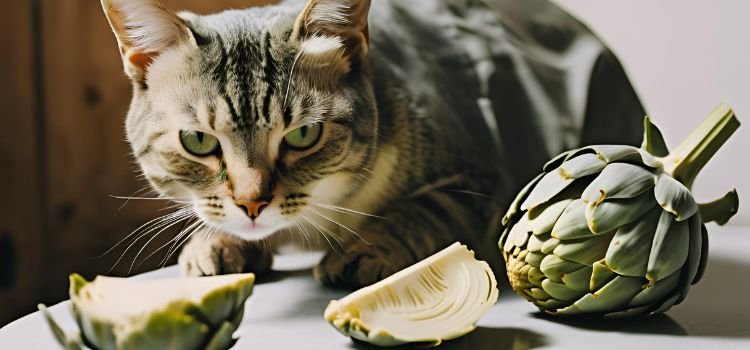
Alternatives To Artichokes
Artichokes are a healthy vegetable for humans, but you might wonder if they are safe for cats. Cats have different dietary needs and not all human foods are suitable for them. If you’re considering feeding artichokes to your feline friend, you might want to look at some safer alternatives instead.
Fruits And Vegetables That Are Safe For Cats
Many fruits and vegetables can be healthy and safe for cats in moderation. Here are some options:
- Carrots: They are rich in vitamins and can be offered cooked or raw.
- Peas: High in fiber and protein, peas are a great snack for cats.
- Green beans: These are low in calories and high in fiber.
- Blueberries: Packed with antioxidants, they can be a sweet treat.
- Watermelon: This hydrating fruit is safe in small amounts.
Here’s a quick table summarizing these options:
| Fruit/Vegetable | Benefits |
|---|---|
| Carrots | Rich in vitamins |
| Peas | High in fiber and protein |
| Green beans | Low in calories, high in fiber |
| Blueberries | Packed with antioxidants |
| Watermelon | Hydrating fruit |
Other Healthy Treats For Cats
Apart from fruits and vegetables, there are other healthy treats that you can give to your cat:
- Cooked chicken: A lean protein that cats love.
- Tuna: Ensure it is packed in water, not oil, and given in moderation.
- Boiled eggs: A great source of protein, but should be fully cooked.
- Catnip: This herb can be a fun and healthy treat for your cat.
- Commercial cat treats: Look for ones with natural ingredients and no fillers.
Offering a variety of treats can keep your cat healthy and happy. Ensure all treats are given in moderation to maintain a balanced diet.
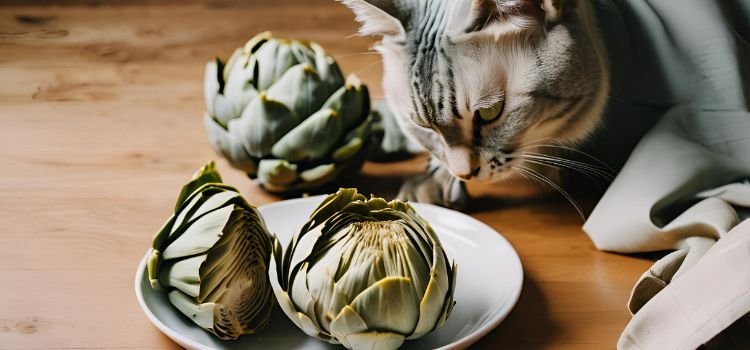
Conclusion
Cats can eat small amounts of artichoke, but it’s not necessary for their diet. Always consult your vet before introducing new foods. Stick to cat-safe treats and foods. Prioritize your cat’s health and well-being. Remember, a balanced diet is key for a happy, healthy feline.
Frequently Asked Questions
Yes, artichokes are safe for cats in small amounts. Ensure they are cooked and free from seasoning or additives.
Artichokes are not toxic to dogs and cats. However, always feed them in moderation to avoid digestive issues.
Cats should avoid onions, garlic, leeks, chives, and shallots. These vegetables can cause serious health issues. Always keep them away from your cat’s diet.
Cats can safely eat raw carrots, cucumbers, zucchini, and spinach. Always wash vegetables thoroughly before serving.
Cats should not eat artichokes. They can cause digestive issues and may lead to choking hazards.
Amazon and the Amazon logo are trademarks of Amazon.com, Inc, or its affiliates.
